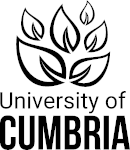
Honorary Doctorate for former university board member
Emeritus Professor John Lee has been awarded the University of Cumbria’s highest honorary award.
In the splendid historic surroundings of 900-year-old Carlisle Cathedral, the University of Cumbria has bestowed its highest honorary award upon Emeritus Professor John Lee.
Emeritus Professor Lee has dedicated his life to working in and supporting education. In 1967, he started his career working at the University of Manchester, later taking up the Head of Department for Environmental Biology post in 1986. Following from this, John moved to the University of Sheffield as professor of environmental biology before spending the last three years of his formal academic careers as Dean of Faculty of Pure Science at the University of Sheffield where he retains his Emeritus Professor status.
Emeritus Professor Lee has had a keen interest in ecology from a very young age, starting at school in Portsmouth and on camping holidays on Exmoor and in the New Forest where he learnt to identify plants and how to find, cook and eat edible fungi. He became President of the British Ecological Society and is now an Honorary Member, its highest honour.
With this keen interest in hand, John graduated from the University of Sheffield with a BSc (Hons) in Botany in 1964 and with a PhD in 1967. His research concentrated on plant adaptation to extreme environments and the effects of environmental perturbations on semi-natural ecosystems, including atmospheric pollutants and the effects of global climatic change which involved fieldwork being undertaken in Cumbria.
His research has had international reach, with John presenting at meetings across the globe and being published in major international journals, including Nature, Ecology and the Journal of Ecology. With this reach and experience of leadership John also served as president of the International Association for Ecology (INTECOL) for several years.
John's standing has led him to serve on advisory committees both at home and abroad. In the UK these included several committees of the Natural Environment Research Council, the Economic Social Research Council’s Training Board and the Council of the National Trust. Abroad examples include advising the Committee of European Communities on the need to limit the concentration of nitrogen oxides in the atmosphere, the Swedish Royal Academy of Sciences on environmental research, and research quality in Dutch universities.
John’s life long commitment to education is evident through the various memberships he has had on committees and boards outside of his research interest, including serving a 10 year term on the University of Cumbria's Board of Directors.
Upon receiving his honorary doctorate, John (pictured) said:
“I’m both highly delighted and humbled at the same time because it is a very great award to have and I never thought that I would achieve this level of distinction.
“I have been associated with the University of Cumbria in the past as a board member and I’ve watched the university grow.
"It is now a great cornerstone of higher education in Cumbria, and therefore I’m delighted to be continuing my association with the university”.
Notes to editors
Photography credit: Jonathan Becker (Becker Photo)

